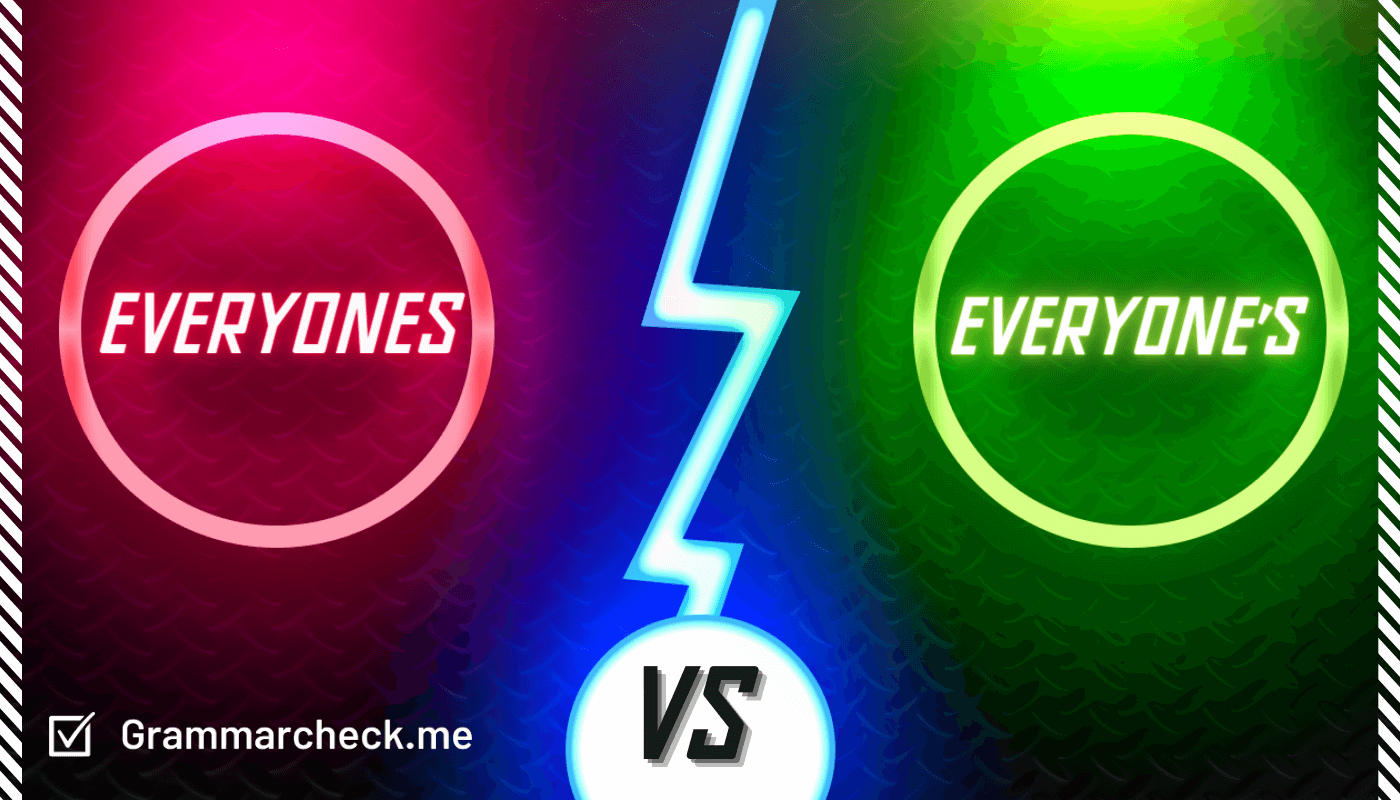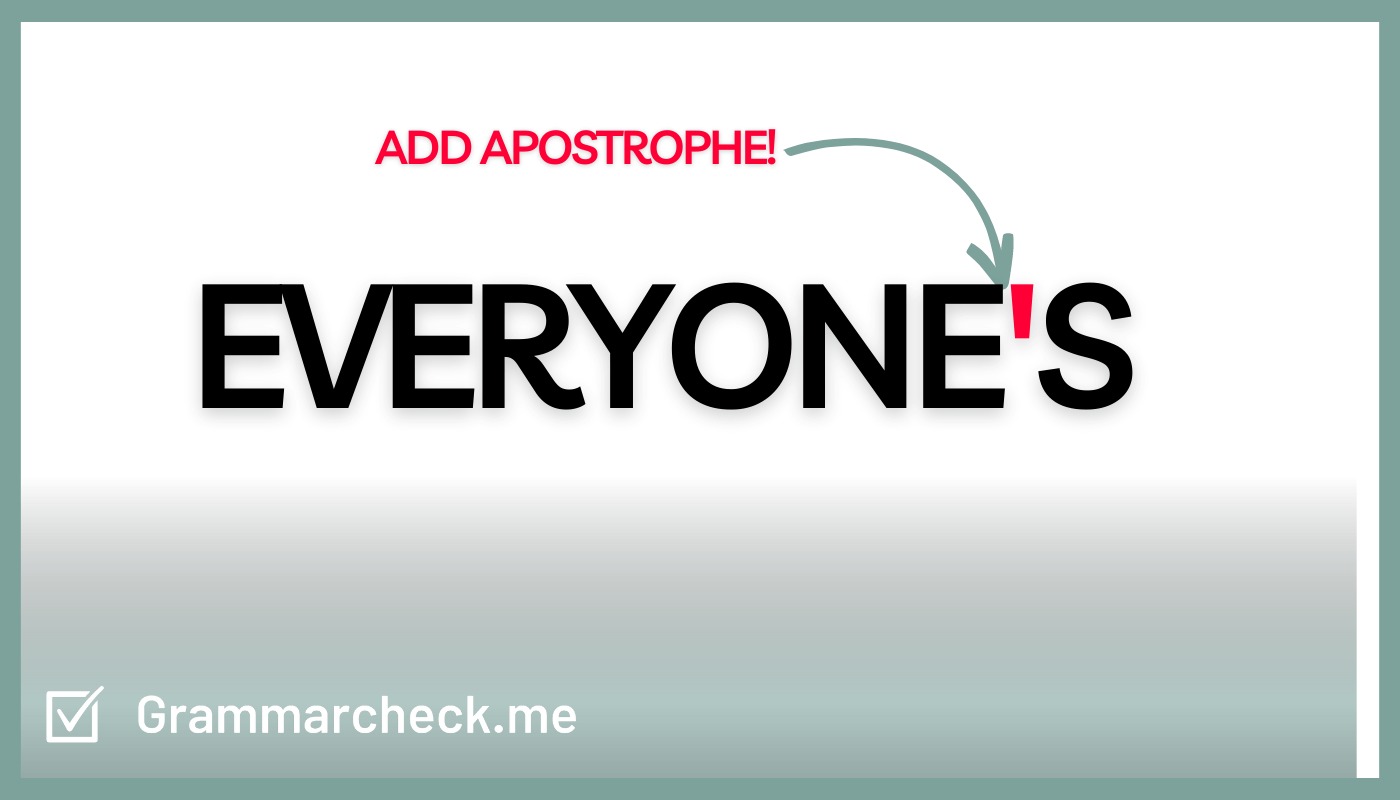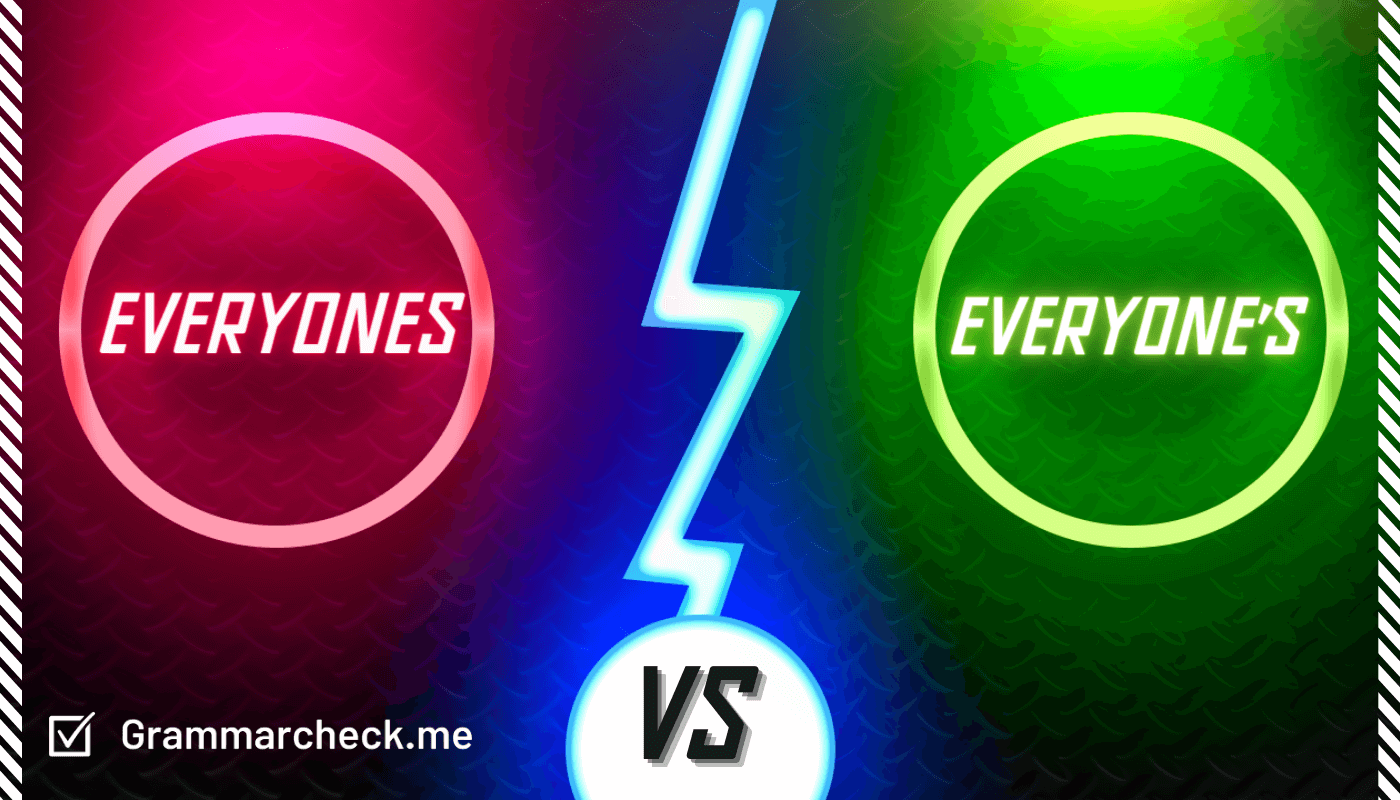Wondering what the difference is between “everyone’s” and “everyones,” or whether there even is a difference? Find out in this article.
One of the most challenging parts of learning how to write in English is understanding punctuation, especially when taking a noun from singular to plural.
Punctuation is used in many different contexts in English, both within sentences and within words. In fact, if you get the punctuation wrong in a word, you might misspell it or completely change the meaning of the word.
When it comes to using punctuation to pluralize a word, it’s even more crucial to get it right, or else you may end up with the wrong form of the word or an entirely incorrect word altogether.
One example of this phenomenon is whether to use “everyone’s” or “everyones.” This article will clear up the meaning of each spelling of the word and whether either one is correct to use.
Start at the Source – Everyone

Before we dive deep into the “everyone’s” or “everyones” dilemma, let’s first make sure that we’re clear on the definition of “everyone.”
“Everyone” is a singular pronoun that refers to all members of a group. It’s also a synonym for “everybody.” The two are often used interchangeably. Just like the words Atleast & At least, writers often get the spelling wrong.
Here is how “everyone” is used in a sentence:
- It’s time for everyone to go home.
- Everyone is eating in the dining room.
- Everyone loves watching you perform.
This makes “everyone” different from the two words “every one.” Instead of referring to everyone in a group, “every one” refers to each group member.
Here’s how “every one” is used in a sentence.
- Every one of the children passed the test.
- Every one of them disobeyed orders.
- Every one is hand-picked.
For emphasis, you can add the word “each” before “every one,” such as in the following examples:
- Each and every one of you deserves to be here.
- I designed each and every one.
Now that you know what “everyone” means, let’s explore what happens when you add an “s” to the end of it.
Everyone’s or Everyones – What’s the Difference?
A common point of confusion is what happens when you add an “s” to the end of “everyone” – whether it turns into “everyone’s” or “everyones.”
The first thing to remember is that, while “everyone” may refer to a group of people, the word itself is singular. Therefore, you can add an apostrophe followed by an “s” to make it possessive, as with all singular nouns. As a result, “everyone’s” is the possessive singular form of “everyone.”
Here are some examples to demonstrate how this works in a sentence:
- Everyone’s favorite day of the week is Saturday.
- Tomorrow is everyone’s last day of school.
- Everyone’s wedding day is memorable.
When used this way, “everyone’s” doesn’t necessarily refer to any specific group but can refer to a more general group. We learned even more about the rules for spelling plural nouns in our analysis of the words tomatos vs tomatoes!
What About Everyones?

While “everyone’s” is a possessive singular pronoun, everyones isn’t a possessive plural pronoun.
The practical rule in English is to add an “s” to the end of a noun to make it plural. However, this does not work with the noun “everyone,” even though it is singular.
Everyone is a singular pronoun and cannot be pluralized. This is mainly because, although the word itself is singular, it already refers to a group of people, therefore, it cannot be further pluralized.
Therefore, not only does “everyones” not work as the plural form of “everyone,” “everyones” isn’t even a word at all. The same goes for adding an apostrophe to make “everyones’.”
Just like we saw in our comparison of the words deactivation and inactivation, writers often confuse similar words!
Everyone’s As a Conjunction
While we’ve only discussed “everyone’s” as possessive, it’s important to note that it is also a conjunction under some circumstances.
A conjunction is the merging of two words to become one. One of the most common conjunctions is the pronoun and the verb “to be” in present form – “is.”
When you have a pronoun immediately followed by the word “is,” you have the option of dropping the “i,” and simply putting an apostrophe between the pronoun and the “s.”
Here’s an example:
- He is going to the park
- He’s going to the park.
Since “everyone” is a pronoun, the same rules apply to turn it into a conjunction as well:
- I think it’s time to serve dinner because everyone is hungry.
- I think it’s time to serve dinner because everyone’s hungry.
Understanding the difference between using “everyone’s” as a conjunction and using it as a possessive singular pronoun is essential. Just like we saw in our analysis of the words Flies and Flys, many words can be used in more than one way!
The Takeaway
To wrap up, here are the main takeaways of this article:
- “Everyone” refers to a group of people, but the word itself is singular.
- “Everyone’s” is the singular possessive form of the word “everyone.”
- There is no plural form of the word “everyone.”
- “Everyones” is not a word.
If these are confusing words, don’t worry! Even native English speakers make the common mistake of treating “everyone” like a plural word instead of a singular word, leading to various grammar mistakes.
With these rules in mind, you’ll have no trouble properly using the word “everyone” and applying it to every context. If you need some extra help with these spelling rules, consider using our English grammar online check free tool!

